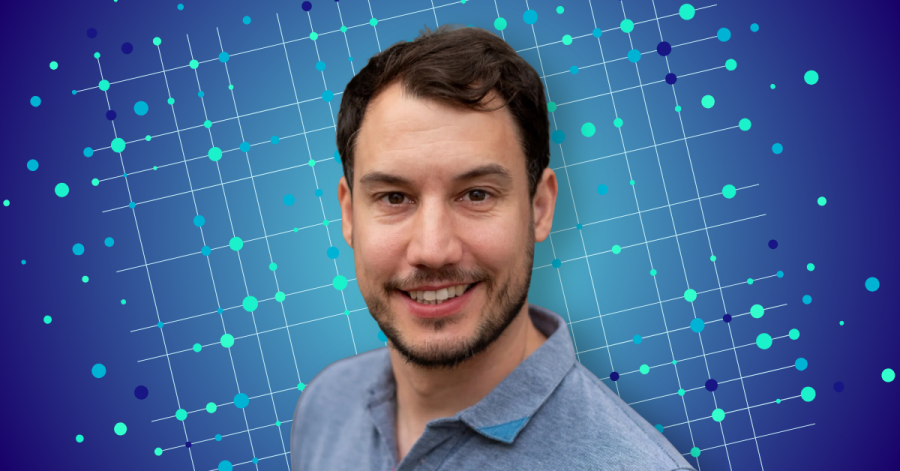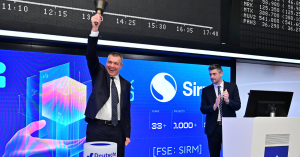The important question about the implementation of AI in various fields, isn’t just “how smart can our machines get?” but “how smart can they be with our knowledge?” This was the central theme of my discussion with Stefan Damm — a seasoned engineer, manager and co-founder of a startup specializing in knowledge retrieval systems — and his workshop at TEDAI Vienna 2025.
Having cut his teeth at Austria’s unicorn Runtastic during the mobile app boom, Damm is now tackling the equally dynamic, and arguably more complex, world of enterprise AI, as a CTO of a startup Mimirio.
From Fitness Tracking to AI Foundations
Damm’s journey to Mimirio is rooted in the scaling of Runtastic. Over a 13-year period, spanning its hyper-growth and eventual acquisition, Damm led engineering teams. “I started out as a developer but then moved on to a team lead position and then into VP of Engineering,” he recalls. Under his supervision, the team scaled from 50 to 100 engineers in less than two years. This rapid expansion, and aim to build “autonomous teams,” illuminated a critical challenge: how to provide the teams with the right knowledge to be truly autonomous?
His last years at Runtastic involved rebuilding the company’s data stack, migrating from a early-day legacy system to a state-of-the-art structure. This hands-on experience in modernizing data infrastructure ignited his passion for AI and machine learning. Much like his early adoption of mobile technology, Stefan recognized the potential of generative AI. “It was clear that that was something I wanted to dive deeper,” he stated.
What your teams share with AI?
The final impulse to start Mimirio, however, came from an all-too-common problem across the corporate world: the tension between new AI tools and data privacy.
After realizing they shared a common vision, Damm and Jakob Reiter started talking to companies, and they all told the same story. They wanted to use GenAI tools, but corporate compliance was a constant blocker. Worse, employees were already using external tools like ChatGPT, often the free tiers, with little regard for the sensitive data they were sharing.
They observed two main reactions from businesses to this new reality:
- The Wild West: Innovative companies lacked clear policies, and employees (who often required a degree in computer science or compliance to understand the fine print) were simply using the tools without oversight. Damm is quick to add, “I’m not blaming the employees actually.”
- The Compliance Clampdown: Other companies were “too scared,” allowing compliance to take over and ban the use of these tools, stalling strategic AI deployment at the Proof-of-Concept stage.
How to find balance to these two scenarios? As Damm put it, by effectively sharing information while remaining “sensitive with what is shared,” especially in highly regulated sectors like banking.
This clarity of the problem, the corporate world needed to use GenAI, but needed to do it safely with its own data, laid the foundation for Mimirio, Damm explains.
The three states of knowledge
So, where do knowledge retrieval systems truly shine in the day-to-day operations of a business?
Damm views them as a “horizontal technology,” applicable across diverse functions and fields. “It’s a tool that you can use in all kinds of different ways… across all knowledge workers, basically, to automate rudimentary tasks that are boring, to bring people to a higher level.” This elevation, taking employees away from repetitive information gathering to more strategic thinking, is the core promise (but a promise many before them tried to fulfill).
However, the challenge in enterprise RAG (Retrieval Augmented Generation) deployment is not simply connecting the AI to the data. It’s managing the “noisy, busy, conflicting knowledge bases” that exist in every large organization, from formal technical documentation to informal internal wikis and scattered file shares.
This is “the hardest problem to solve in that space,” Damm admits.
Getting from a working proof-of-concept (POC) to a production-ready system invariably boils down to data. “… Like what data you choose to give the agent and then how do you filter that data so it makes sense for the agent,” Damm stresses.
Mimirio’s solution involves thinking about knowledge in three distinct types, each with its own cost and speed profile:
- Hot knowledge: Immediately provided to the agent within the prompt, requiring few tokens.
- Warm knowledge: Pre-populated in a vector store or knowledge graph, demanding some upfront cost for constant updates but offering speed.
- Cold knowledge: Accessed via a tool, like a file server. This incurs no upfront cost but leads to “latency” and “a lot of more tokens” as the agent must “read the complete document.”
European values embedded
While many companies have chaotic data environments, Damm confirms that those in sensitive industries — like the banking sector — are generally better organized. However, Mimirio is not solely focused on financial institutions. They are seeing significant interest from banking, legal, and high-tech manufacturing to sectors that intrinsically value the data privacy and security.
Damm also emphasized his company’s unique selling proposition, rooted in “integrating digital humanism, data protection and resilience principles,” or in short, their commitment to European values.
“It starts with the system design,” Damm explains, focusing on engineering controls to prevent data leakage. For their customers, this means running the Mimirio platform within ther client’s own private cloud infrastucture, inheriting all the pre-existing security controls. This on-premise, secure deployment is a crucial differentiator from US-based SaaS solutions.
For smaller and medium-sized enterprises (SMEs) with limited resources, Damm advises two paths: “If they are not in a sensitive space and are comfortable with the regulations, US SaaS tools can work. But if a company needs to protect certain information, they “should turn to European companies,” because they offer the ability to run within the company’s own security domain.”
The future is autonomous & original?
Looking ahead to 2028 or even 2030, Stefan envisions a transformative future for knowledge retrieval systems. “I think they will power the AI systems of the future.” He believes that by continually advancing these capabilities, “we can have all the knowledge in the company within the agent and really then have the autonomous agents that can do a lot of stuff.”
This vision offers a powerful counter-narrative to concerns about AI-generated “noise” polluting future datasets. Knowledge retrieval, or RAG, “can save us from actually the AI feeding itself on the data that it will generate.”
By grounding AI in verified, company-specific knowledge, the potential exists to build more insightful, practical, and ultimately, more valuable AI applications, ensuring that creativity and originality continue to live alongside intelligent automation.







